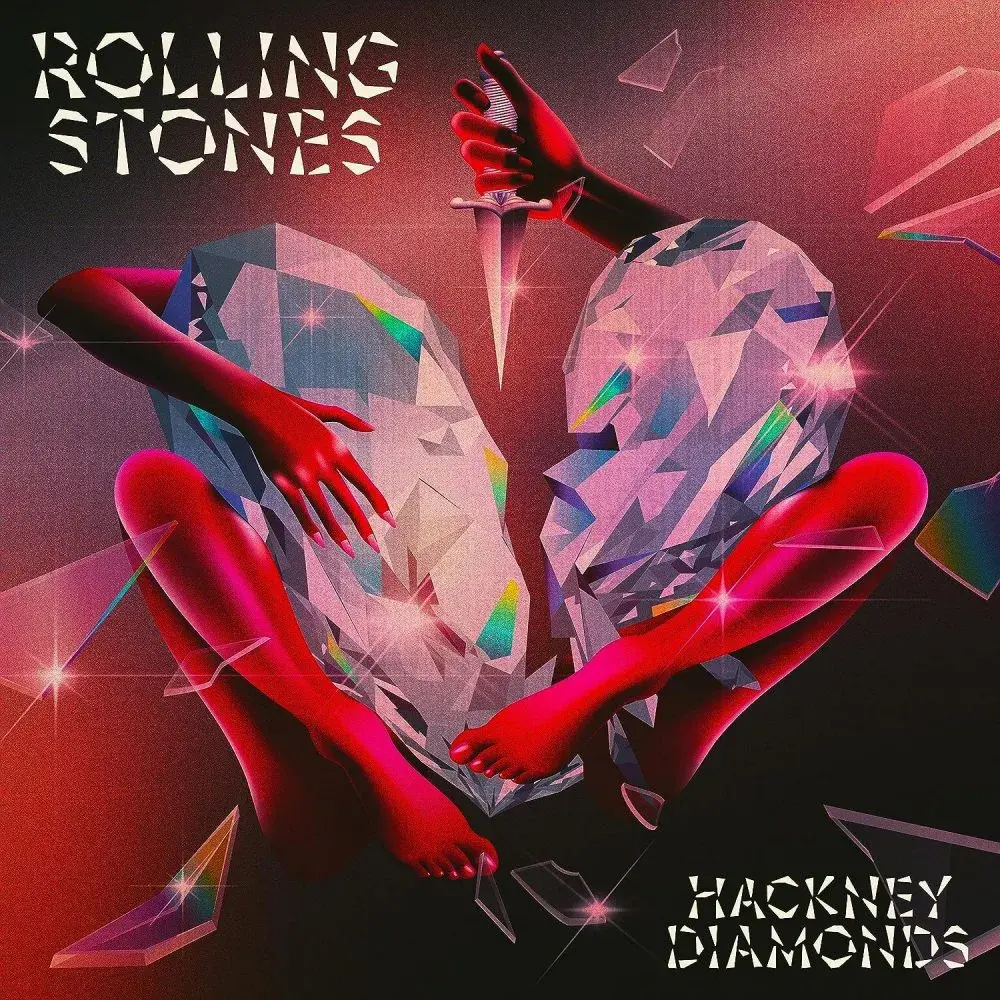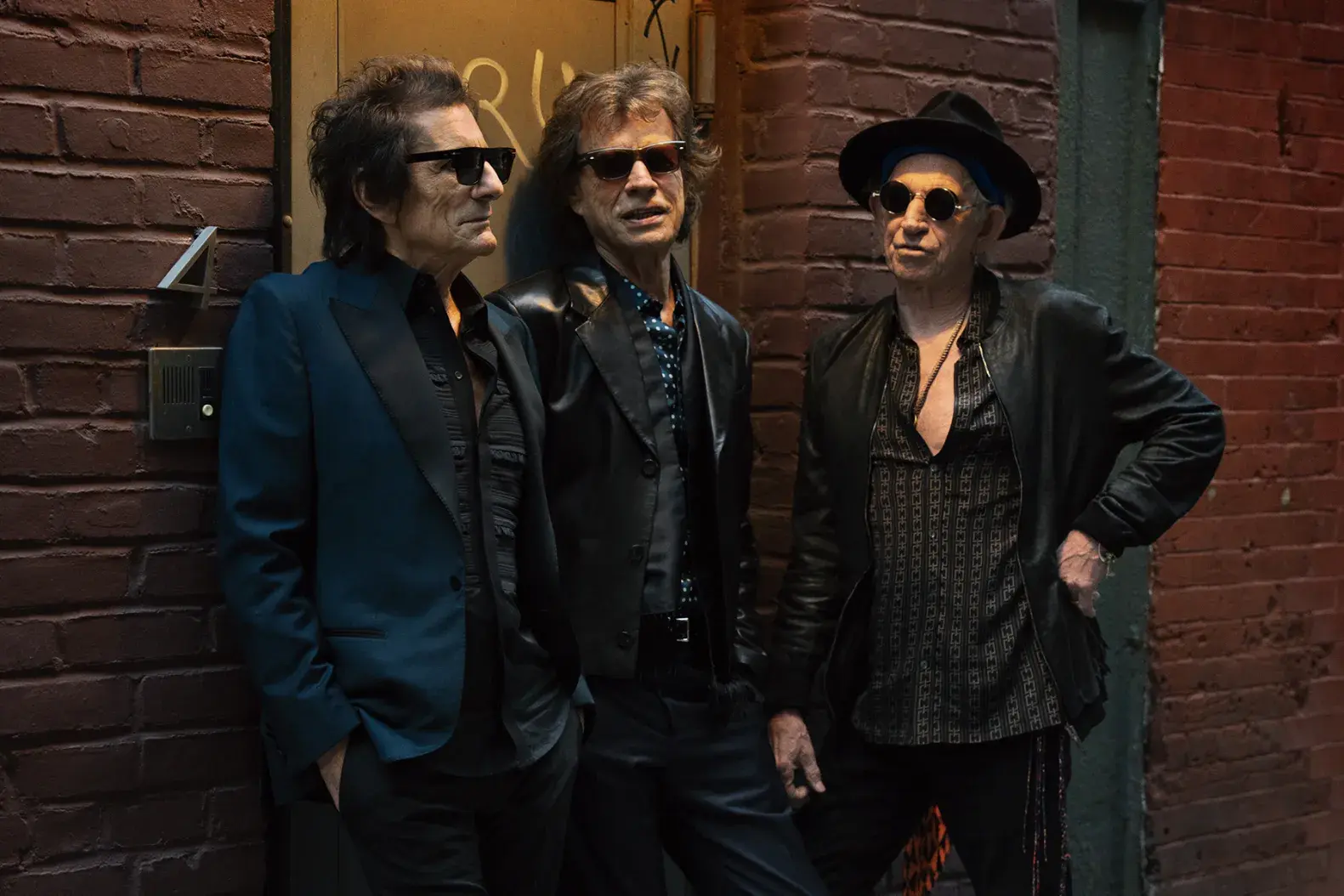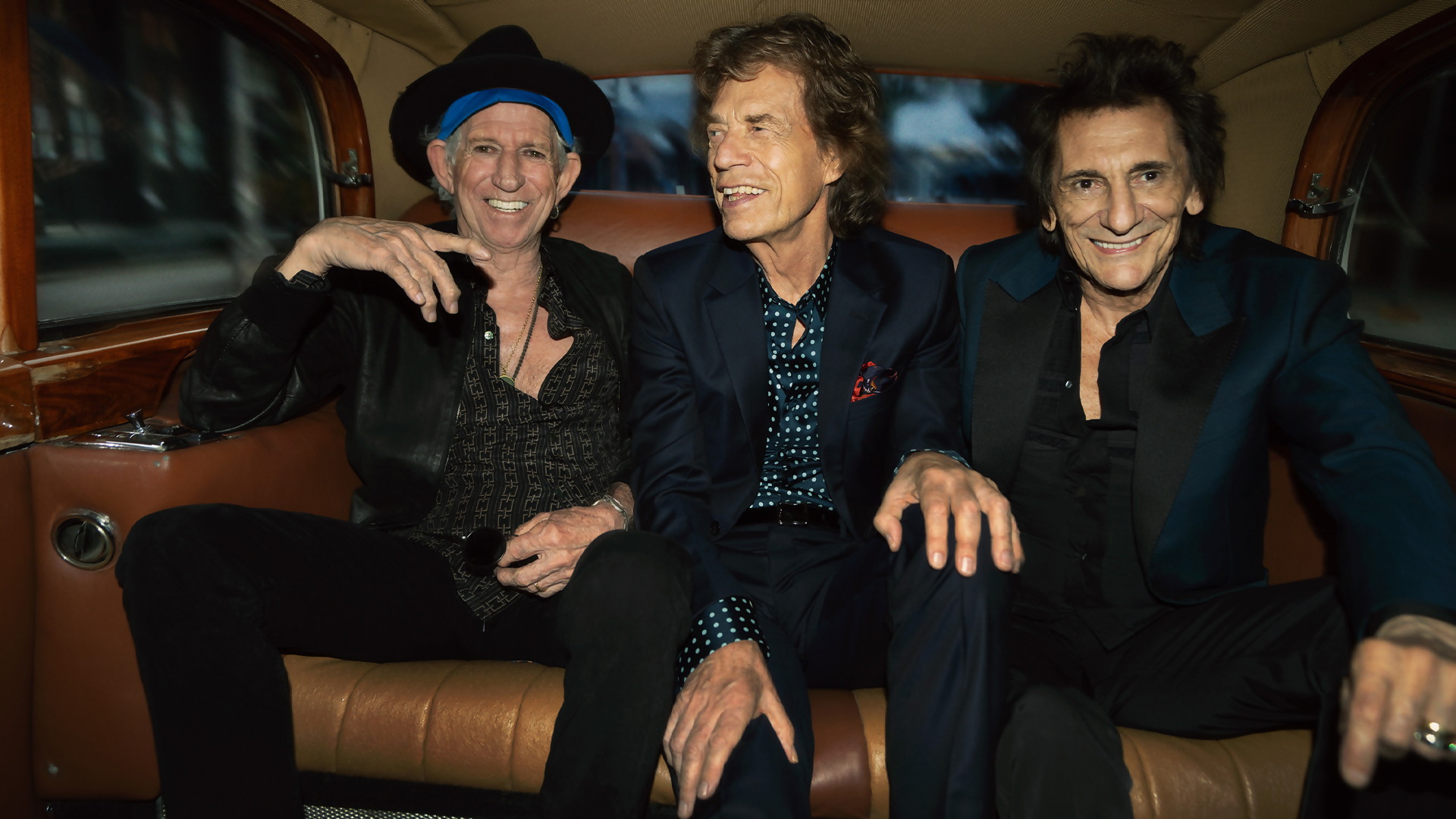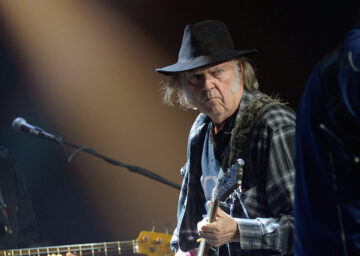★★★★☆
I learned to never write off The Rolling Stones long ago, back in the depths of the nineties when – as a snot-nosed 23-year-old – I was dragged to see what I then described as “a bunch of old codgers” at a suitably dilapidated Wembley Stadium. In contrast to the show-band blandness I expected, the Bridges to Babylon show delivered one of the landmark experiences of my life in any facet of art. I was schooled that day. It was a lesson I’ve carried with me since.
To put the importance of this new Stones material – and, save for a parting shot I’ll come to later, all of Hackney Diamonds is new Stones material – into some kind of context: only 2005’s A Bigger Bang and the 2016 covers LP Blue & Lonesome stand between it and the LP that heralded that tour (Bridges was released in 1997).
The Jagger-Richards writing nexus has delivered just over 50 songs since the turn of the ‘90s, so these records don’t come along too often – and it’s exciting to tell you that you’ll have to go back to 1989’s Steel Wheels before you find anything equal to the consistent quality herein. Since then, the band have produced ear-catching moments – ‘Has Anybody Seen My Baby?’ immediately springs to mind – but as a cohesive statement, Hackney Diamonds is a strong one.

In the years since A Bigger Bang, the band have moved on from their previous go-to producer, Don Was, placing Andrew Watt in the control room for this 12-song set. Watt, whose credits include Justin Bieber, Post Malone and Miley Cyrus, succeeds in both giving the band an unmistakably modern edge, while also getting the hell out of the way and letting them be The-most-Rolling Stones imaginable in 2023.
Indeed, from the first seconds of opener ‘Angry’, it’s obvious that, in defiance of the ambushes many bands fall victim to in the pursuit of relevance, The Stones are never outgunned or outnumbered here – not even by the big names like Paul McCartney, Lady Gaga and Elton John that litter the credits, or the mix of Serban Ghenea (best know for Grammy-winning efforts for Taylor Swift, Adele and Bruno Mars).
READ MORE: From Dartford Station to Hackney Diamonds | 12 defining moments of The Rolling Stones
There is only one band in the world this could be. That’s despite – on all but two tracks – long-time collaborator and key component of Richards’ X-Pensive Winos side-gig, Steve Jordan, inheriting the drum stool from the late, inscrutable, backbone of the group, Charlie Watts. Jordan’s more expansive feel around the kit soon becomes obvious after an unashamedly Watts-esque, tight-as-you-like opening salvo, which ‘Angry’ uses to buttress Richards’ trademark choppy riffing in a way we’ve enjoyed many times.
This new chemistry channels the lolloping shuffle of ‘70s classic ‘Sway’ on the second track, ‘Close to You’ – a standout, even among the quality here and the closest Hackney Diamonds orbits to the unrepeatable lightning in a bottle of Let It Bleed, Sticky Fingers and Exile, a run of LPs produced between 1969 and 1972 that will perhaps forever define their legacy. This is helped in no small part by James King’s screaming sax, which channels the late, great Bobby Keys, an underrated component of the energy those records possess.

Photo: Mark Seliger
Watts appears on two tracks that sit in the middle of the LP, which make use of sessions recorded by Don Was at an undefined time prior to his passing in 2021. His unmistakably austere delivery underpins the spiky disco groove of ‘Mess it Up’, and the glammy stomp of ‘Live By The Sword’ – notable for the contribution of Bill Wyman, who adds his bass to Watts’ beat for the first time on a Stones record since Steel Wheels, and none-other than Elton John jamming out honky tonk piano in a notable sideman contribution.
With and without Wyman and Watts, the juggernaut that is The Rolling Stones has rolled around the world for the last four decades, leaning heavily on the unimpeachable brilliance of the band’s output prior to the start of the ‘80s. If nothing else, Hackney Diamonds serves to reinforce the core lesson I learned as a much younger man: The Stones are never going to be fossils, no matter what labels get stuck to them. They’re a living, breathing, occasionally spitting, rock n’ roll animal. They always were, and always will be.
They no longer sit at the zeitgeist, but they don’t need to; they will forever stand as a throughline from the jazz and blues they synthesised into ‘60s pop, and then the defining rock sound of the ‘70s, traded in through the early 21st Century, and now bring through into the modern musical landscape with this set.
They’ve been an inescapable facet of British popular culture since they first shuffled out of the clubs of early-60s London, but the passing of Watts marks the unstoppable passing of time and inevitably causes one to wonder if this may be the band’s final LP of original material.

Photo: Mark Seliger
If it is, Hackney Diamonds sits close to the high water mark of the last 40 years of the band’s existence. As they head into the album’s closing moments – a cacophonous coda to ‘Sweet Sounds of Heaven’ and a distorted, slithering take on Muddy Waters’ ‘Rolling Stone Blues’ it’s hard to imagine a better way for them to sign off.
With a bit of luck, though, they’ll think of one down that line somewhere.





